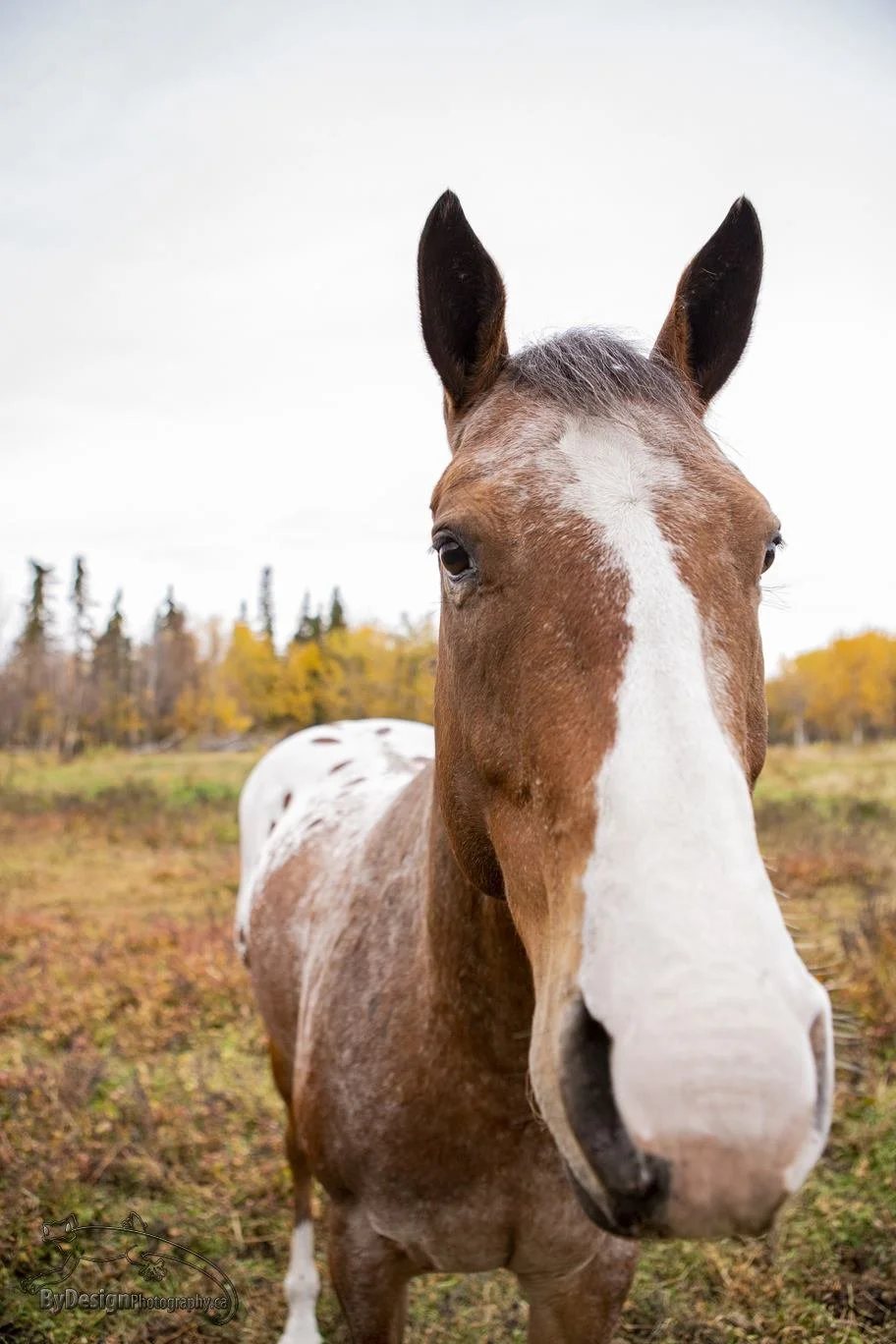Equine Therapy.
A safe, present relationship, where a client is invited to be more fully themselves.
Snugs (Mr. Snuggles), one of my equine co-therapists
What Is Equine Therapy?
Interactions can include grooming, brushing the body, mane and tail of the horse; cleaning their feet; and touching and petting the horses in a gentle way.
Walking with the horses, we talk about what experiences the horse is having, how the horse is feeling, how the horse is similar to us, and how we are relating to the horse and his/her behaviours in the present moment. Sometimes we make connections to our own lives and to what we are experiencing. Sometimes we just allow there to be space for quiet and for being.
Equine Therapy is a process-based, bottom-up, body to mind therapy approach. It is felt in the body, the heart and the soul. The main focus is the present experience, the five senses, the energy field, and the nonverbal communication between person and horse.
Diane and Carmel
A Profound Connection
There is an acceptance and non-judgment with horses that is very different from many human interactions.
Clients sense these qualities from the horses deeply - and this helps to foster a feeling of safety and ease, often very quickly.
In this safe, present relationship with the horse, a client is invited to be more fully themselves and is able to feel secure enough to bring their difficulties and challenges to the session.
Photo: By Design Photography (Chance)
How Does It Work?
There are biological and evolutionary explanations as to why Equine Therapy is helpful, as well as attachment and brain/nervous system pieces to this puzzle.
The evolutionary explanation is based on a concept called “biophilia”, which means that we have evolved alongside animal species in the natural world, and therefore we seek connection with both animals and nature.
Since both horses and humans are mammals, our brains are wired similarly for attachment. When we connect with ourselves and the horse, and we become conscious of our present, felt experience, we can feel calm and secure (see Julie Murphy, Hakomi Therapist and Trainer, the 3 C’s of Attachment, juliemurphy.org).
There is a correlation between secure attachment and the following outcomes: the ability to feel our feelings without becoming overwhelmed; increased physical and mental health; increased mindfulness and the ability to be more present in the moment; and more life satisfaction.



